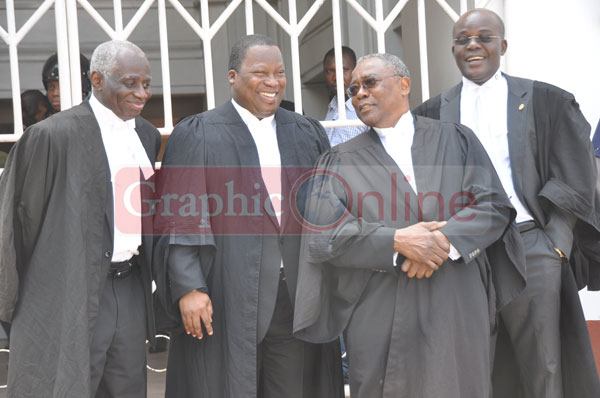Electoral system flaws must be addressed
Arku Jasmine
Politics
 Elections in Africa over the years have been the yardstick for measuring how democratic some countries on the continent are.
Elections in Africa over the years have been the yardstick for measuring how democratic some countries on the continent are. For a long time now African countries have strived to enhance their democratic experiment by holding elections devoid of dispute but a trend that has developed on the continent is the rate at which elections are challenged in court.
Countries such as Uganda, Zimbabwe, Nigeria, Zambia, Cote d’ Ivoire and Kenya, have petitioned various courts in their respective countries to seek either annulment or re-election.
The just ended elections in Zimbabwe was not any different as President Robert Mugabe defeated his long time rival, Morgan Tsvangirai, over an election which was disputed.
Efforts by Mr Tsvangirai to use the courts to seek redress over his defeat had always proven futile as his case had never been heard, raising suspicions that the reluctance of the court to hear the matter is politically motivated.
The Movement for Democratic Change on whose ticket the prime minister contested the recent elections was quoted to have said that his party “had not received election material needed to corroborate its claims that the vote was rigged and it would not receive a fair hearing”.
Mr Tsvangirai, who served as prime minister in a unity government with President Mugabe after the 2008 elections, rejected the results of the July elections, which gave the octogenarian president 61 per cent of the votes cast.
The prime minister withdrew the election petition, citing that the “trial was going to be a mockery of justice”.
A Kenyan court recently in a judgment upheld the victory of Uhuru Kenyatta when the opposition candidate challenged the results in court.
This development set a high standard in terms of democracy with respect to the ability of African states to settle their electoral disputes in court without resorting to violence.
Ghana was the latest among the league of countries on the continent to peacefully settle an election petition in court.
The Electoral Commission (EC) in Ghana declared President John Mahama as winner of the 2012 polls but the New Patriotic Party (NPP) petitioned the Supreme Court, challenging the results.
President Mahama, according to the results, polled 50.70 per cent of the votes while his closest challenger, Nana Akufo-Addo of the NPP, polled 47.74 per cent.
The NPP rejected the results, claiming the elections were rigged in favour of President Mahama and indicated its resolve to challenge the results at the Supreme Court, insisting that there was ‘incontrovertible evidence’ of widespread irregularities which favoured the president, and had an impact on the final outcome of the poll.
After an eight-month long litigation, the Supreme Court gave its ruling in favour of the respondents that consisted of President John Mahama, the EC and the National Democratic Congress (NDC).
One of the Supreme Court Justices, Justice Jones Dotse, in his judgment said elections in Ghana would not be the same again, which has sparked calls for electoral reforms in the country.
A former United Nations Secretary-General, Mr Kofi Annan, in a recent statement called for reforms in the electoral system to address the flaws that were identified during the election petition.
He said that the fact that the petition had been successfully adjudicated “must not blind us to the flaws in our electoral systems that the judicial review has brought to light.”
By Sebastian Syme/Daily Graphic/Ghana